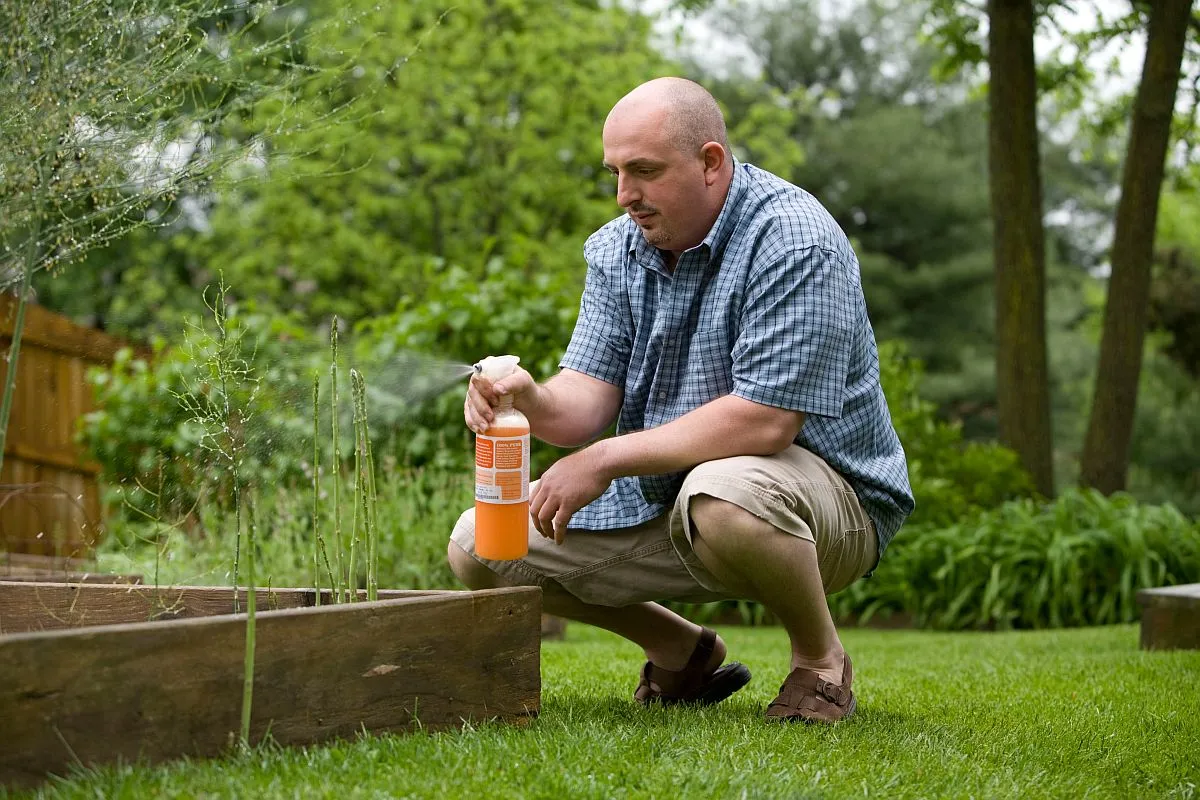
To ensure we support our songbirds, we must encourage insects to thrive as we rely on them as a major part of our ecosystem. Not only are they food for songbirds but they pollinate our plants, and weeds can also have benefits for supporting insects and producing food for birds.
The major problem with using pesticides is that they do not discriminate. You may be attempting to target one species in your garden, but many other species will also be affected by the pesticides. The effects on our pollinators like honeybees and bumblebees have been widely documented. We also don’t know the wider effects of using pesticides on bird species, but we are conducting research on this to find out more.

Songbirds need a variety of things to survive, including;
Food, water, shelter, and nesting materials for breeding. Using harsh chemicals in the garden can make some of these harder to acquire.
Weedkillers are not wildlife friendly – native weeds are one of the essentials needed for native insects, birds, and mammals. Some species of weeds can provide great materials for nesting as well as a food source. Lawn feed and weed is also not recommended. Lawns are a wonderful resource for a wide range of wildlife, but they need to include mixed flowers and weeds to offer the right habitat for wildlife.
If your garden is young and you haven’t yet achieved the full range of wildlife then you may, initially, need some artificial assistance to keep pests in check. If you do use chemicals, make sure it is sparingly and don’t spray everything. There are many vegetable-based pesticides available; they often need more applications than harsh chemicals, but it means that any bird or insect eating the dead pests will not be harmed. There are lots of alternatives to discourage pests from taking over your garden, including:

Conboy, N.J.A., McDaniel, T., Ormerod, A., George, D., Gatehouse, A.M.R., Wharton, E., Donohoe, P., Curtis, R., Tosh, C.R. (2019) Companion planting with French marigolds protects tomato plants from glasshouse whiteflies through the emission of airborne limonene. PLoS One. 14(3): e0213071. https://doi.org/10.1371/journal.pone.0213071
Griffiths-Lee, J., Nicholls, E., Goulson, D. (2020) Companion planting to attract pollinators increases the yield and quality of strawberry fruit in gardens and allotments. Ecological Entomology. 45(5)P: 1025-1034.
Tassin de Montaigu, C., Goulson, D. (2021) Field evidence of UK wild bird exposure to fludioxonil and extrapolation to other pesticides used as seed treatments. Environmental Science and Pollution Research. 29: 22151-22162 https://doi.org/10.1007/s11356-021-17097-y
Tassin de Montaigu, C., Goulson, D. (2020) Identifying agricultural pesticides that may pose a risk for birds. PeerJ. 8:e9526 https://doi.org/10.7717/peerj.9526
Van der Sluijs, J. P. (2020) Insect decline, an emerging global environmental risk. Current Opinion in Environmental Sustainability. 46:39-42
Woodcock, B.A., Bullock, J.M., Shore, R.F., Heard, M.S., Pereira, M.G., Redhead, J., Ridding, L., Dean, H., Sleep, D., Henrys, P., Peyton, J., Hulmes, S., Hulmes, L., Sárospataki, M., Saure, C., Edwards, M., Genersch, E., Knäbe, S., Pywell, R.F. (2017) Country-specific effects of neonicotinoid pesticides on honey bees and wild bees. Science. 356(6345): 1393-1395
We need your help to fund our crucial independent research and work.
Join our community and receive our exclusive membership benefits.
Receive our monthly e-news and regular updates